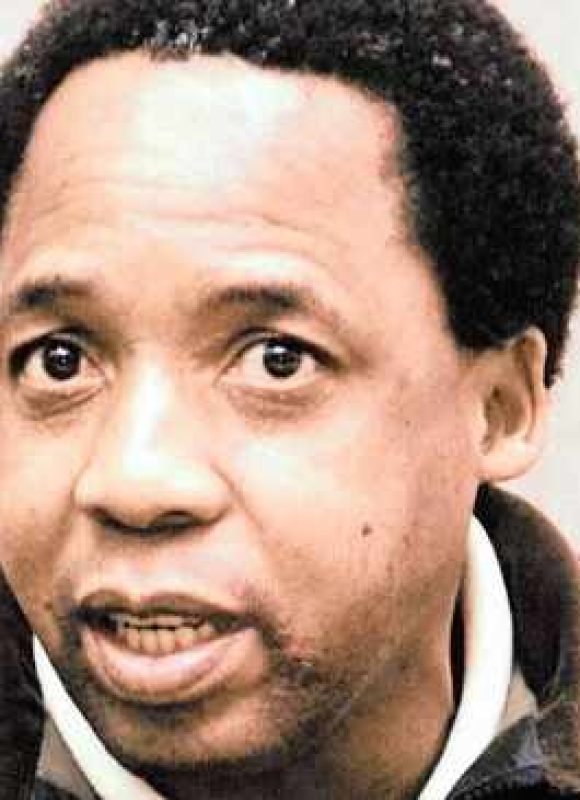PIONEER
Chris Hani

Umkhonto we Sizwe chief of staff | SACP general secretary | Human rights activist
Born: 28 June 1942 Died: 10 April 1993
“What we need in South Africa is for egos to be suppressed in favour of peace. We need to create a new breed of South Africans who love their country and love everybody, irrespective of their colour.”
Who is
Chris Hani?
Influential anti-apartheid activist who served as Chief of Staff of Umkhonto we Sizwe (MK), and General Secretary of the South African Communist Party (SACP) before he was assassinated in 1993.
Professions
and Roles
Activist, Chief of Staff of MK, General Secretary of the SACP, member of the ANC National Executive Committee (NEC).
Best Known For
Political leadership in the African National Congress (ANC) and SACP, as well as MK; assassination in 1993.
Life highlights
- Hani attended the University of Fort Hare from 1959 to 1961 and was exposed to Marxist ideology. He graduated from Rhodes University in 1962 with a BA degree in Latin and English, and moved to Cape Town to work as an articled clerk with a legal firm.
- Hani’s political involvement began in 1957 when he became a member of the ANC Youth League. He was active in campus protests over the takeover of Fort Hare by the department of Bantu education.
- In 1961, Hani joined the underground South African Communist Party. In 1962 he joined MK and became a member of its Western Cape leadership, dubbed the “Committee of Seven”.
- Hani was first arrested in 1962 at a roadblock after being in possession of political pamphlets against the government. He was charged under the Suppression of Communism Act and held in jail, finally being released on bail.
- After his release he attended an ANC Conference in Botswana, and on his return he was again arrested at the border, tried and given an 18 month jail sentence. While out on bail, he went underground on advice of the ANC leadership.
- Soon after, he left South Africa for the Soviet Union, and returned in 1967 to take an active role in the Rhodesian bush war as a Political Commissar in the Zimbabwe People’s Revolutionary Army.
- After escaping to Botswana, he was arrested and detained for two years for weapons possession. He returned to Zambia at the end of 1968.
- In 1974, Hani re-entered South Africa to establish an underground infrastructure for the ANC in the Western Cape.
- Hani subsequently moved to Lesotho where he remained for the next seven years, organising units of the MK for guerrilla operations in South Africa.
- In 1982, he was elected as a member of the ANC National Executive Committee (NEC), and by 1983 had been promoted to Political Commissar of MK. In 1987, he was again promoted to Chief of Staff of MK, which he held until 1992.
- After the unbanning of the ANC and SACP in 1990, Hani returned to South Africa. In 1991, he became General Secretary of the SACP.
- Hani had become the focus of several assassination attempts from 1982. In 1993, on his return home, he was assassinated by Janusz Walus, an anti-communist Polish refugee with links to the AWB.
IN THEIR OWN WORDS
“In 1959 I went over to university at Fort Hare where I became openly involved in the struggle, as Fort Hare was a liberal campus. It was here that I got exposed to Marxist ideas and the scope and nature of the racist capitalist system. My conversion to Marxism also deepened my non-racial perspective.
My studies of literature further strengthened my hatred of all forms of oppression, persecution and obscurantism. The action of tyrants as portrayed in various literary works also made me hate tyranny and institutionalised oppression.”
– Chris Hani
IN THE WORDS OF OTHERS
“The life and memory of Chris Hani has become one of the major symbols for the aspirations of the poor and working people in South Africa. His life, sacrifices, dedication and example captured a person whose entire life was dedicated to the service of ordinary poor and working people. Whilst South Africa has many heroes and heroines who lived and died for similar aspirations, but Chris Hani was murdered on the eve of the beginnings of the realisation of the aspirations of the majority of South Africans. His assassination also directly led to the securing of 27 April 1994 as the date for the first ever democratic elections in South Africa.”
– Blade Nzimande, Minister of Higher Education, Science and Innovation
